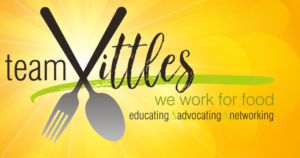Feeding the Whole Child… and the rest of the community
Plain City Public Library, Ohio
By Shane Hoffman, Plain City Public Library, OH & Team Vittles
We’ll cut straight to the chase today. The Coronavirus is creating a massive strain on our nation’s ability to feed itself. It has made the poor poorer, it has created massive unemployment, and more. Our Feeding America Food Banks and countless other organizations are doing their best, but let’s talk about ways libraries can get involved.
Right now, some schools may need your help. The schools in my state have been closed for weeks, but yours may just now be closing. Contact your schools and see if the library can be of any assistance with meal delivery or pick up. It’s possible that library van or bookmobile can help get lunches to rural kids who cannot make it to a pick-up site. Maybe your library is positioned well to be a pickup point for the “Grab and Go” lunches many school districts are providing. If your school is just getting to its official spring break week, the school may not be able to provide meals to kids during that time. As a well-connected community partner, the library may be able to assist in coordinating a response during that time if no other group in the community has already taken charge.
Most of us know about the Summer Food Service Program (SFSP), which allows libraries and non-profits to serve meals to those under age 18 during the summer when they may not have access to free or reduced-price lunches at school. These meals can be the only food access some kids have. Did you know that there is a similar program called the Child and Adult Care Food Program (CACFP)?
https://www.fns.usda.gov/sfsp/summer-food-service-program
CACFP gives us access, with roughly the same eligibility and guidelines as SFSP, to after school snacks and after school meals during the school year. The response to the current epidemic has ramped up the ability, in many areas, to provide shelf-stable meals in bulk. This has the benefit of making it easier for many libraries to serve meals, as temperature control for hot and cold meals can be a significant obstacle. It also has the benefit of making meals more portable to reach remote sites that may not have access to local vendors.
https://www.fns.usda.gov/cacfp/child-and-adult-care-food-program
The statistics used to determine eligibility for SFSP and CACFP were determined late last year. The current situation has certainly altered the picture and created much more need. We may need to be proactive in contacting our congressional representatives about recalculating eligibility for this year.
https://www.house.gov/representatives/find-your-representative
https://www.senate.gov/general/contact_information/senators_cfm.cfm
Does your library do outreach services? Many food banks have a “Senior Box Program” that provides a week or month worth of food to eligible seniors. Your outreach service could provide a lifeline to shut-in seniors.
https://www.feedingamerica.org/take-action/advocate/federal-hunger-relief-programs/csfp
Most of us have heard of the “Little Free Library”. Did you know that there is also a “Little Free Pantry” movement out there? It works the same way as the library version, but with shelf stable food and supplies. Check out http://www.littlefreepantry.org/ for more information.
Lastly, a big step for many libraries could be to open a food pantry in the library. Operate a drive-through pantry. Host a mobile food pantry. Libraries are indeed eligible to serve as food pantries. Most food pantries are volunteer-run and have very limited hours. Libraries can help with that problem as well as help avoid the stigma of walking into a food pantry. That stigma prevents many people from getting the help they so desperately need. For more information on these opportunities, check with your Feeding America Regional Food Bank. You can discover yours at https://www.feedingamerica.org/find-your-local-foodbank.
Hungry kids can’t learn. We can play roles in alleviating hunger as big or as small as our situations allow. I urge you to consider what you can do as we plan for a summer and school year that may find many doing without. If you are already active, I urge you to think if there is more you can do. If you are just getting into the game, start that conversation now.
To join in the discussion about how libraries are working with food insecurity, join the CSLP – Feeding the Whole Child: Libraries and Food group on Facebook at https://www.facebook.com/groups/cslpfeeds/

This story shared with the permission of the Collaborative Summer Library Program. Learn more at their Libraries and Summer Food initiative.

